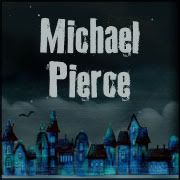Writing Tip: Less is More.
Ernest Hemingway believed that through omission you could strengthen your story. The reader then must fill in those gaps with their own feelings and emotions. His Iceberg Theory states:
If a writer of prose knows enough of what he is writing about he may omit things that he knows and the reader, if the writer is writing truly enough, will have a feeling of those things as strongly as though the writer had stated them. The dignity of movement of an ice-berg is due to only one-eighth of it being above water. A writer who omits things because he does not know them only makes hollow places in his writing.
- Ernest Hemingway in Death in the Afternoon
When Stephen King was in high school, submitting short stories to magazines, he received a rejection letter with a critique that he has used throughout his admirable career.
"Not bad, but PUFFY. You need to revise for length. Formula: 2nd Draft = 1st Draft - 10%. Good luck."- Stephen King in On Writing
Both of these quotes speak to not over writing. Get to the point. Get to the action. Describe selectively and focus on things pertinent to the story, driving it forward. Let the reader fill in the gaps. Take out the fluff. The leaner story should be more clear and flow more gracefully. There is an elegance to simplicity. Less is more.
Provex City News
Have you checked out the Provex City review from Allison at Geek Banter? If not, then I've got just the link for you! CLICK HERE. Geek Banter is also a great blog to follow, so don't be shy.
I've been so focused on this blog that I haven't really gotten out and campaigned Provex City around the web. I'm looking into utilizing Goodreads and the Kindle Forums more. I think that's a good place to start, but do you have any other suggestions?
I have to make a decision soon as to whether I'll remain exclusive to Amazon to keep Provex City on the Kindle Lending Library or take the opportunity to put it up on Smashwords, which will distribute the ebook to other sites like Barnes&Noble and iBookstore.
I'm up to 16 reviews on Amazon, which is a great start. Now, how can I make it 100?
Work in Progress
Currently, my WIP is the second book in the Lorne Family Vault Series. For now, I'll just refer to it as Book 2. I've promised myself not to start using the title until I finish with my first draft, and as you can see from my left sidebar, I'm at 82,000 words with an estimated 110,000 for completion. It may only end up being 100,000, it's hard to tell, but I don't want to rush the climax. My writing has slowed as of late due to competing priorities, so my goal of finishing in a month's time is sliding back. Now, my goal is two months, and to hopefully have the book available by Halloween. Now that I've given myself some public deadlines (or estimated times of completion), I can't wait to see how I do.
How is your WIP going? Have you set goals for yourself? Do you have rewards planned for when you reach your goals? How much do you typically cut from a manuscript? Have you read a book by a fellow blogger that you'd like to recommend (I just finished CassaStar currently reading Slipstream, and just downloaded The Backworlds)?










































I don't necessarily cut when I go back through my writing. But I am constantly refining. Usually when I go back through, over 10% gets cut but more gets added also. Which begs the questions: How do you know when you are done? There is an old editor adage that answers that question: You are done when you have met your deadline.
ReplyDeleteI don't currently have rewards planned when I reach my goals, which is why I may not always reach them. Sounds like a good idea. Thanks
In regards to the iceberg analogy, the key to this quote is "if the writer is writing truly enough." The bard may know all about the kingdom of his employ, but without enough subtlety of craft his tale may be misinterpreted and lost beyond the borders of the kingdom.
If less is more then I am good at that. I'm one of those rare authors who has to go back and ADD to the firs draft.
ReplyDeleteHave you done a blog tour yet? Even though Provex City has been out for a while, a one week blog tour would stir up more interest.
Great tips! Thanks.
ReplyDeleteJames, excellent point, these tips from a few American masters will not create good writing, but make good writing better.
ReplyDeleteAlex, I'm interested in a blog your, but need to do some research because at this point I don't know where to start. Thanks!
Blog your = blog tour. Stupid phone!
ReplyDeleteThe -10% rule is a good one. The lady who runs our local writing studio likes to say the draft 1 is the "vomit draft," draft 2 will grow because you'll add everything you didn't realize you needed in draft 1, and drafts 3 and later will start to get shorter and shorter as you refine.
ReplyDeleteDana, thanks for visiting. :)
ReplyDeleteNicole, that's a great description of draft progression.
I love the King quote. I sometimes worry about not being wordy enough, and almost end up padding scenes because I feel like I need more description or whatever. This is a good reminder that sometimes less is more.
ReplyDeleteCongrats again on Provex City! :)
Great writing advice! Stephen King's book is full of great tips. I second Alex's recommendation of a blog tour. I'm sure many of your blogging buddies would be willing to host you on their blogs!
ReplyDeleteJulie, and it's funny coming from King because some of his writing is so wordy and he even acknowledges that in the book. Thanks!
ReplyDeleteAllison, thanks for the second to Alex's recommendation. I will have to look into it when I feel like I can get a little ahead of myself. And I hope so. :)